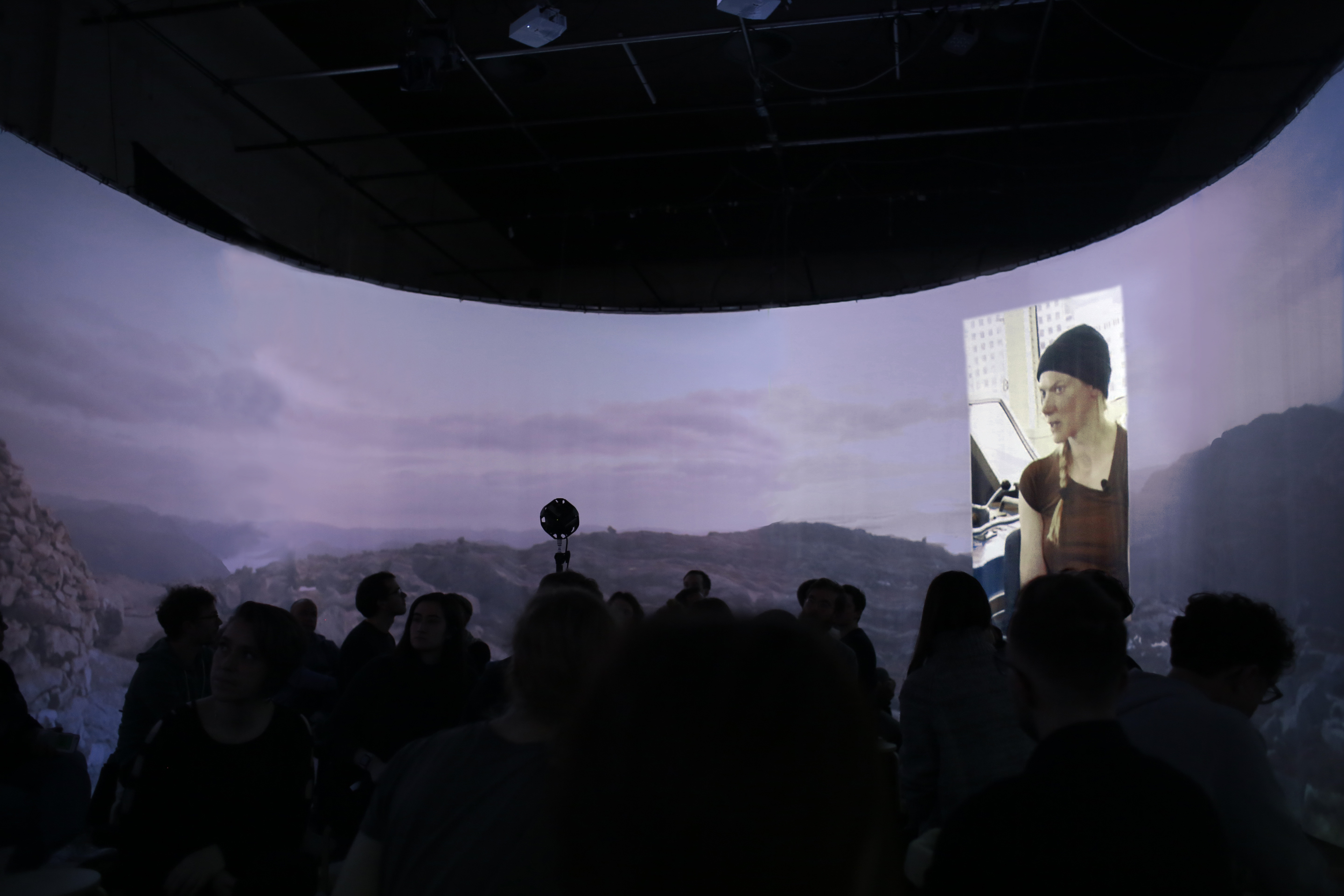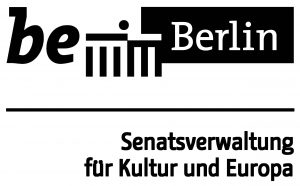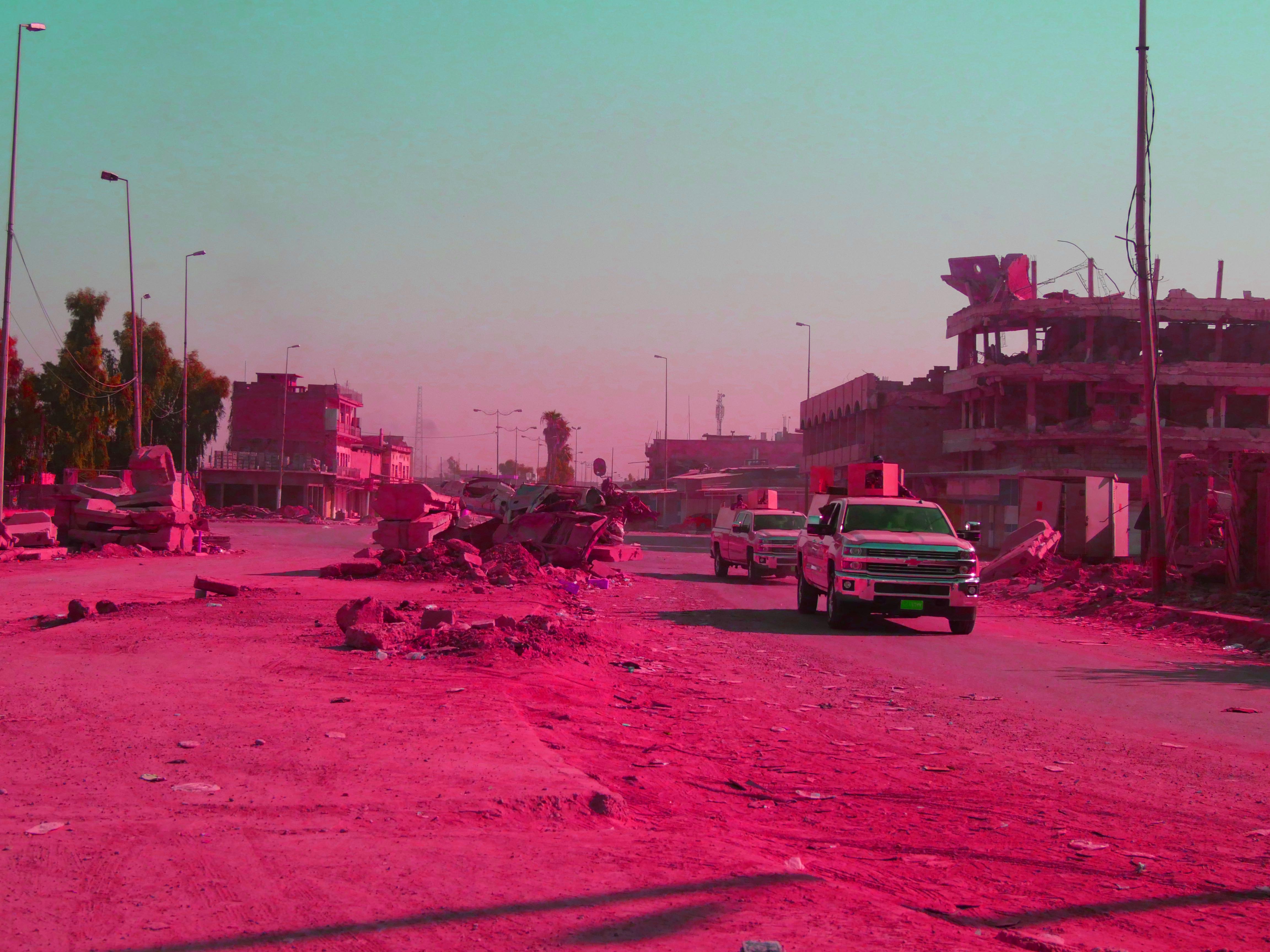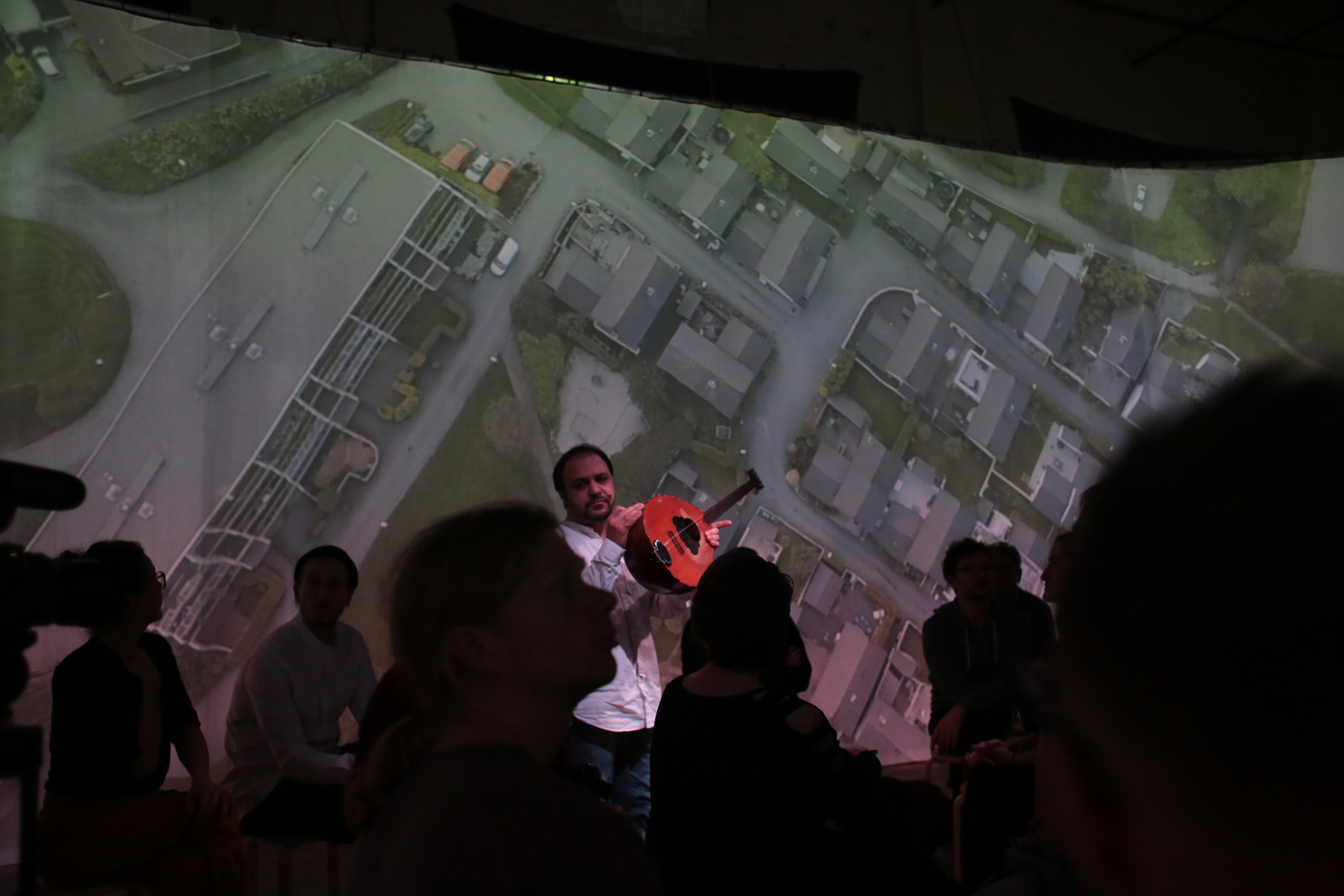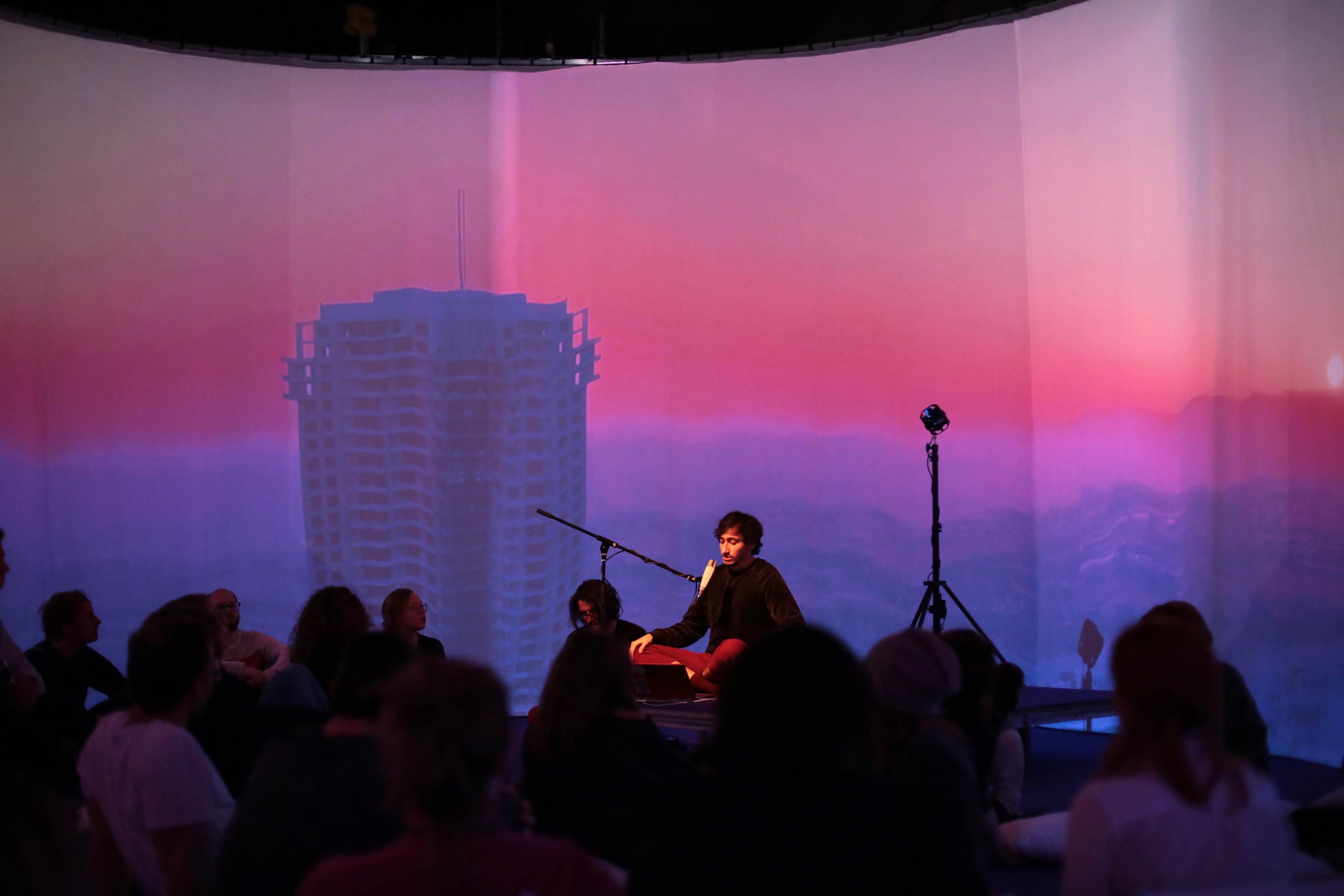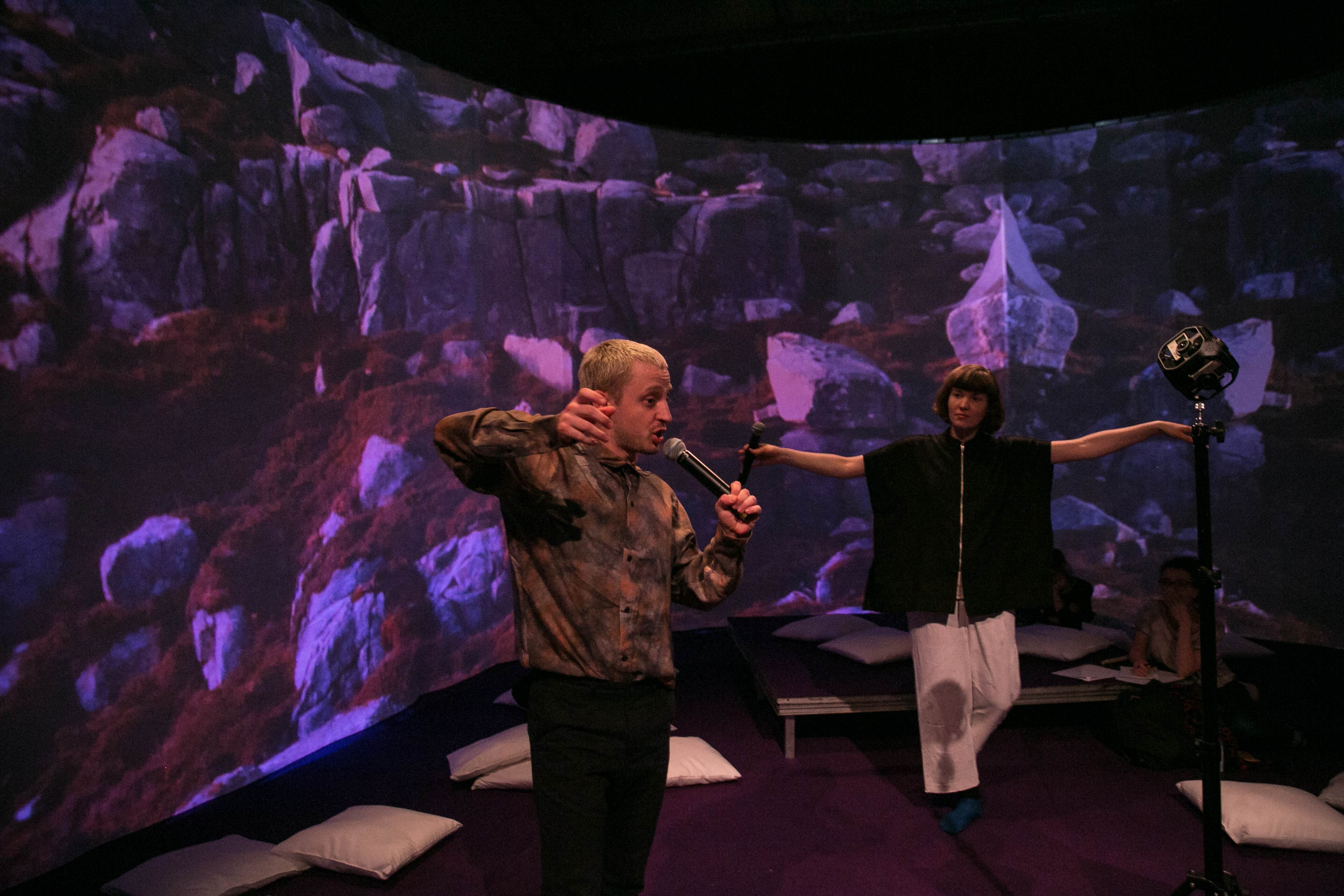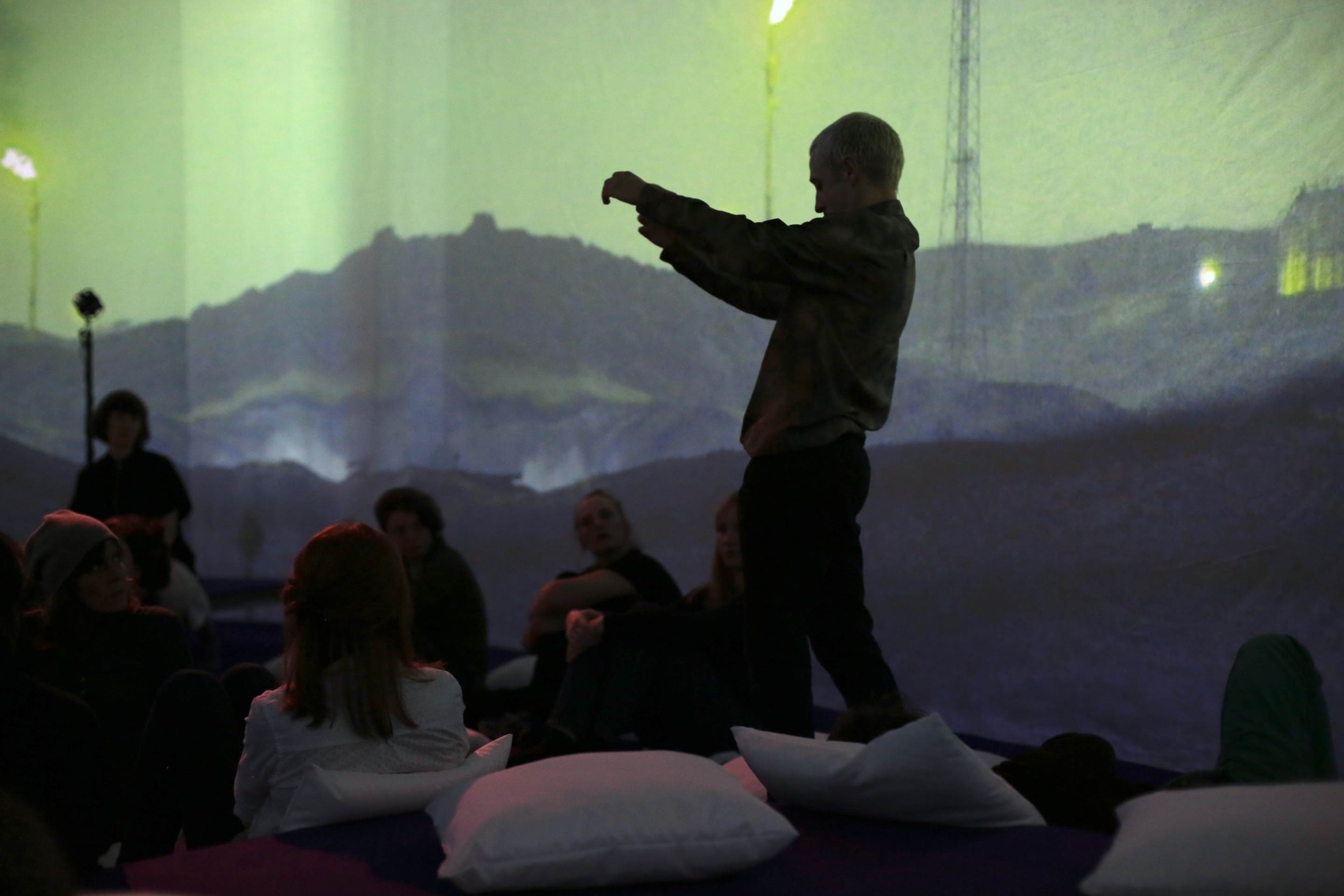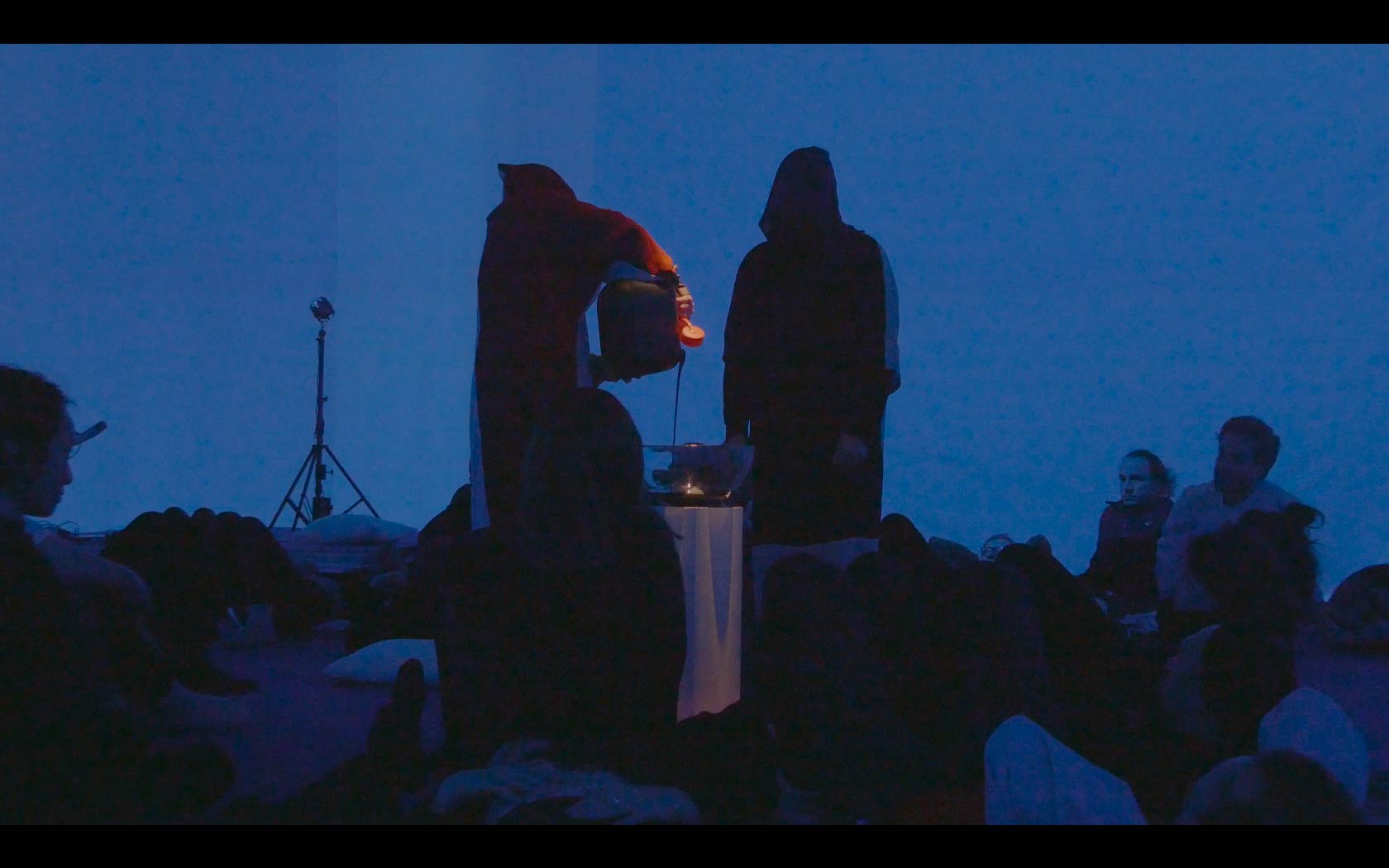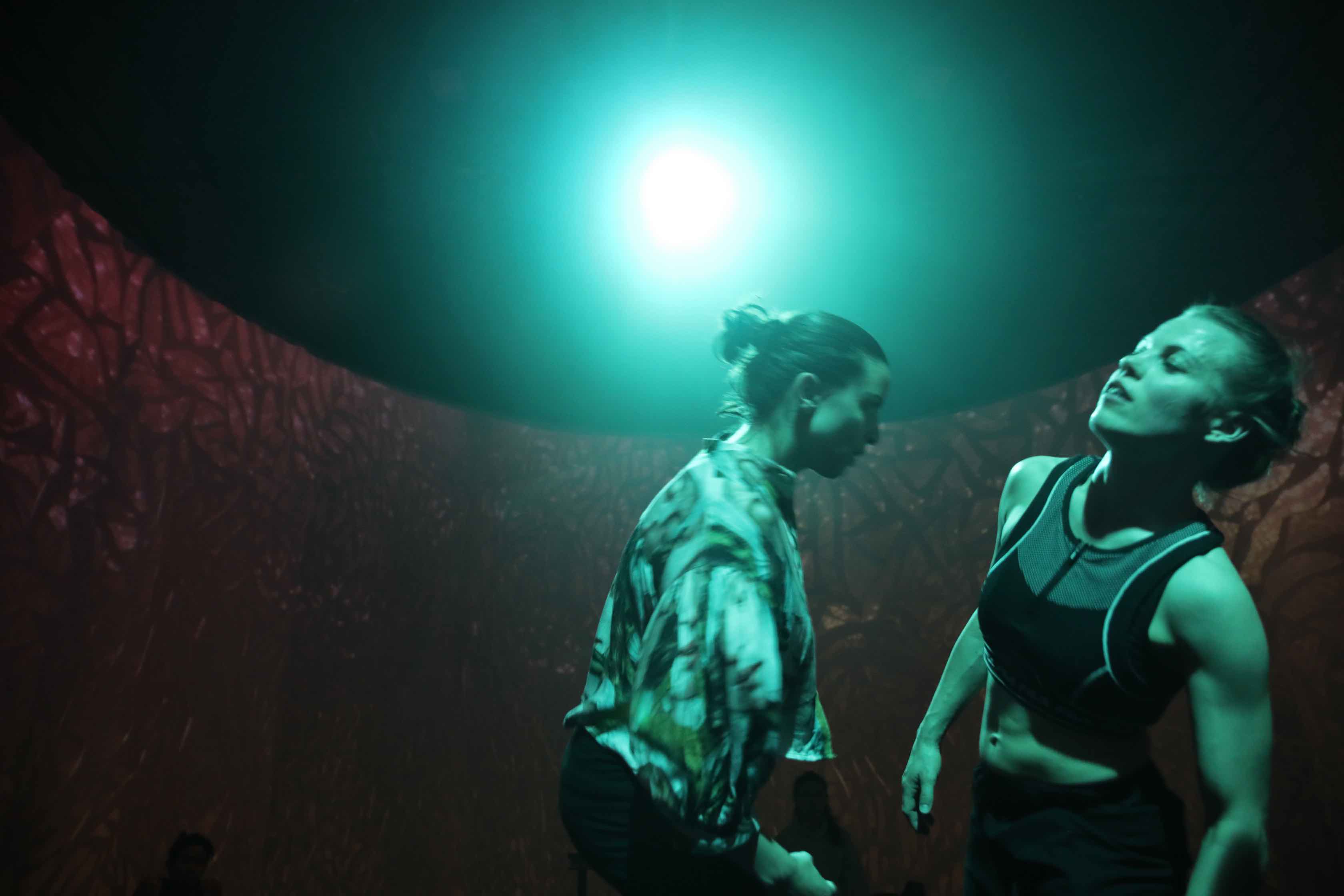EMPIRE OF OIL 1-3
360°-Film, Performance, Dance, VR
24 – 27 May 2018, Ballhaus Ost, Berlin
„Empire of Oil“ is one of the most interesting independent-scene-productions of the recent past, both in its success and in its failure.”
TAGESSPIEGEL, Berlin, 26 May 2018
“An aesthetically convincing contribution to the collective memory of the history around the global realm of oil and its economic and ecological consequences. (…) The bilateral nature of man and nature can not be better represented than here.”
THE FRIDAY, online 31.05.2018
Climate Change, the wars fought over resources and the ongoing so-called refugee crisis are the major challenges that humankind is facing today. The Costa Compagnie decided to dedicate a trilogy to the interconnection of these crucial issues and filmed with a 360°-camera in Norway and in Iraq. The artistic result is an immersive and cinematic 360°-documentary (Part 1), a medially dense lecture-performance (Part 2) and a profound choreography (Part 3), all accompanied by a virtual-reality-installation.
The pressing questions raised are whether the powerful resource entails the potential for a social welfare utopia like in Norway or whether it leads to a never-ending war, as in Iraq? Are there certain aesthetics to the oil-rich underground – the hidden? And will we be able to survive the oil-age?
| EMPIRE OF OIL PART 1-3 24. – 27. May 2018 |
|
| 1 – A RESEARCH IN 360° (DOK. FILM, 80min) Starts at 6 pm / on May 27th at 4 pm |
|
| 2 – THE UNDERGROUND FRONTIER (PERFORMANCE, 70min) Starts at 8pm / on May 27th at 6 pm |
|
| 3 – AN INFINITE ENDING (DANCE, 50min) Starts at 9:30 pm / on May 27th at 7:30 pm |
|
| VR-INSTALLATION throughout all breaks and before the shows | |
TEAM Part 1–3
Artistic Director, Research , Text, Camera, VR Felix Meyer-Christian Choreography Jascha Viehstädt Performance, Dance Martin Hansen, Timothy Lalonde, Julia B. Laperrière, Lea Martini, Anna-Lena Pappe, Maria Walser Voice-Over Hauke Heumann, Felix Meyer-Christian, Maria Walser Singing Inger Lindsjørn Nordvik Buzuq Mevan Younes Stage Design, Costumes Zahava Rodrigo, Nicole Nowak Projection Mapping, VR, Video Erik Kundt Composition, Soundart Marcus Thomas Dramaturgy Caroline Erdmann Camera Stefan Haehnel Fixer Iraq Repak Dawdi, Hana Quader Video Stéphanie Morin, Michail Rybakov Video-Support René Liebert Video-Cutter Ana Catalá, Timothy Justin Lalonde, Miguel Murrieta Vásquez, Karo Serafin Graphics Fanny Wühr Dramaturgy Assistance Lena Mallmann Production Assistance Nicole Nowak Support Doaa Ahmed
A production by Costa Compagnie in cooperation with Ballhaus Ost. Funded by the “Berliner Senatsverwaltung für Kultur und Europa, spartenoffene Förderung”. Kindly supported by Goethe Institute Iraq, liaison office Erbil and Optoma Germany.
DER TAGESSPIEGEL
“Empire of Oil” at Ballhaus Ost
A VERY SPECIAL LIQUID
Some deep drilling at the theater: With the trilogy “Empire of Oil” the performance collective Costa Compagnie is dedicated to the most coveted resource in the world at Ballhaus Ost.
By Patrick Wildermann, 26.05.2018
It was in the days of the second Gulf War in the early 1990s when one could see many young people at demonstrations with banners calling out the slogan “No blood for oil!”. Where the black gold flows, so the dictum, it is not about military goals. But only for the money. The performance collective Costa Compagnie comes to a similar conclusion in its trilogy “Empire of Oil” – with the difference that the group is pursuing a more complex path to investigate the network of drilling and war zones, of economy and ecology.
Based in Hamburg and Berlin, the collective has traveled to Norway and Iraq to speak with people whose lives are marked in very different ways by the global traces of oil. Since November last year, the artists around director Felix Meyer-Christian have already developed a film and an essayistic performance from the material obtained. With the third part, a choreography under the title “An Infinite Ending”, the company now finds its conclusion in Ballhaus Ost. On the occasion of the final premiere, the trilogy can be experienced once more in its entirety.
Pleasing, because “Empire of Oil” is one of the most interesting independent-scene productions of the recent past, both in success and in failure. Especially the first part, “A Research in 360°”, displays a remarkable panorama. The documentary is projected onto a screen that surrounds the audience. The inspiration was the round horizon of 1881 by Hendrik Willem Mesdag, a painting that still allows the 360 degree experience of the beach and the North Sea in The Hague. The diversity of perspectives on which the Costa Company is aiming is thus already certified technically. In addition on the second floor, you can visit an 11-minute full-immersive-experience via virtual reality glasses. You descend the endless ladder onto an oil production platform, stand next to patrolling soldiers on a dusty road in Mosul, you look out over rugged landscapes in a region we call the Middle East.
“A Research in 360°” seeks the greatest possible contrast of the regions. In Norway, where, at the end of the 60s, the oil miracle began that still secures the welfare state through a fund system, the Costa artists are meeting, among others, the offshore manager of a major oil company. An Iraqi geologist, who on behalf of the state contributed his mining expertise in the far North. As well as a Greenpeace activist, who analyzes that “behind most social conflicts an ecological reason” hides, and which also – moderately regrettable – embodies the soulful side of environmental protection, because she for example tears at the sight of seabirds next to drilling platforms.
In Iraq, on the other hand, the artists, and with them the viewers, immediately land in the area of tension between the conflicts around US interests, crimes committed against the Kurdish population, as well as the actions of ISIS. “In Kirkuk,” it once says, “it smells like oil.” And where the complex of claims to power takes on such existential dimensions, questions about climate change or the ravages of drilling in the Arctic are of little relevance.
The second part – the performance “The Underground Frontier” – tries to expand the topic into postcolonial spheres, to questions like: who owns the land, who owns the underground, who owns the resources? The performers Maria Walser and Julia B. Laperrière are negotiating against each other in images from Norway and Iraq flowing into each other, where, unlike in the film, the systemic connection between the two countries remains rather contoured. Of course, globalization lets everything circulate, not just the oil. One wonders a bit what a documentary specialist like Hans-Werner Kroesinger would have distilled from findings. Nonetheless, this part also has its light moments – such as when a sheikh from Mosul is quoted, who in the face of the first oil boom is said to have moaned in wise foresight: “I wish we had found water.”
The dance part “An Infinite Ending” finally remains nebulous in the truest sense. Lea Martini and Julia B. Laperrière create some strong moments of exhaustion in the artificially foggy Ballhaus Ost, struggling and being trapped in a recurring cycle – but without the context of the trilogy those actions might ultimately fizzle out in perplexity. And yet, “Empire of Oil” has a clear message: to question one’s own consumer behavior and, therefore, one’s own dependence on the world’s most desirable resource.
